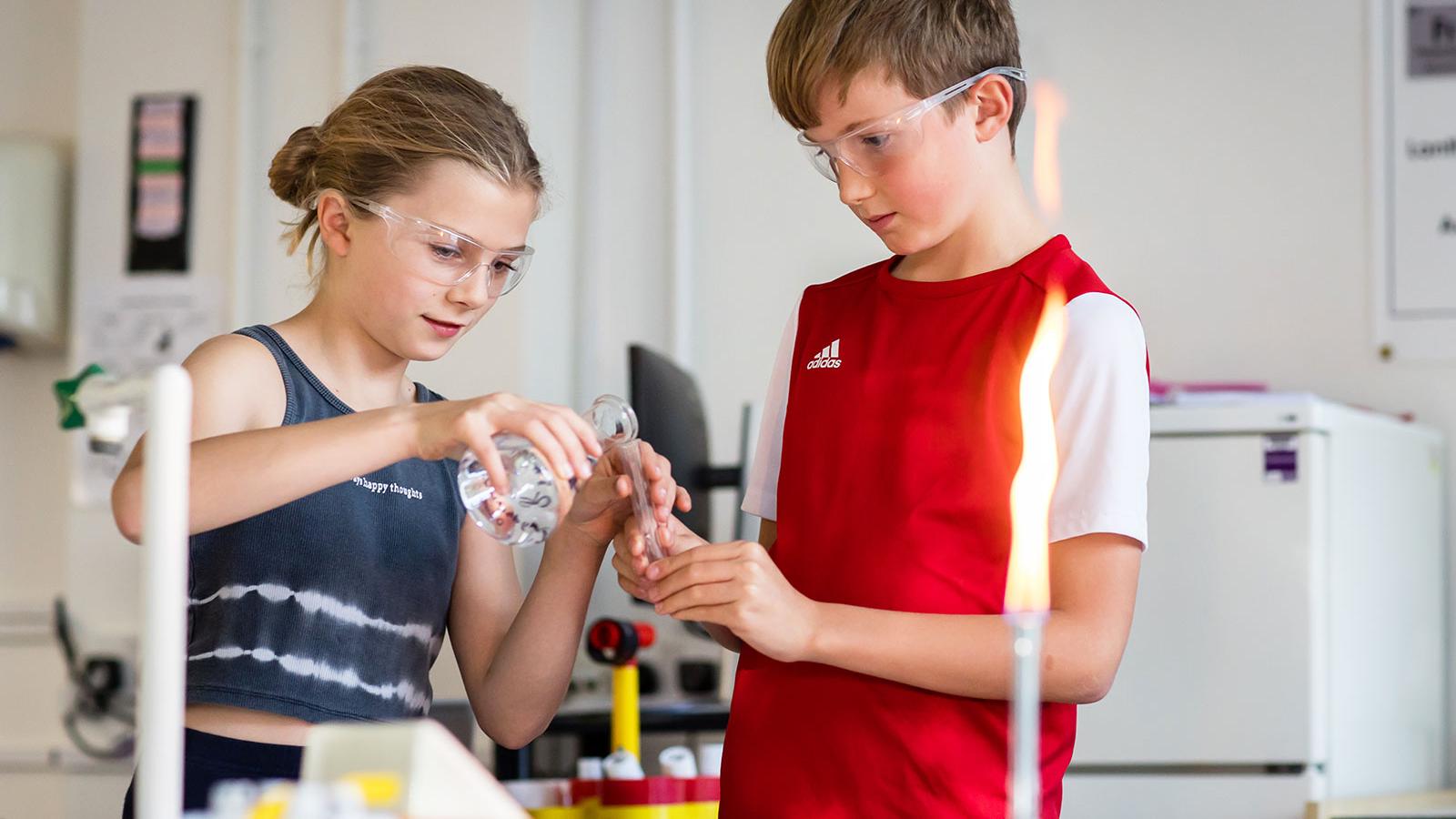- Blocks (Years 7-8)
- Groups (Years 4-6)
Theory guides, experiment decides
Science is a dynamic, growing and exciting practical subject. At Dunhurst, children are able to express and develop their scientific ideas (Bedales founder John Badley’s ‘Head’). Their further learning is then inspired by the opportunities to check their ideas against experimental evidence. Children complete experiments every week (Badley's ‘Hand’), as it is through experience that they best challenge or confirm their beliefs. They then begin to understand currently accepted scientific theory and the roles of scientists in developing these thoughts.
Predict, question, experiment, analyse, conclude
- Pupils under-take a ‘free-prep’ each term where they can pursue a scientific idea of their own choosing.
- Pupils express and develop their scientific ideas. Verbalising their thoughts is the first step in the experimental method.
- Initial predictions are rarely corrected prior to experiments. Experimental results are a more emphatic way for children to develop their thoughts.
- Analyses of experiments develops critical thinking and hopefully leads to accepted scientific conclusions!
- We are keen to stress that science sits within a broad world and to appreciate the views of all people, both via scientific concepts and the people that have developed them.
Theory guides, experiment decides
Science is a dynamic, growing and exciting practical subject. At Dunhurst, children are able to express and develop their scientific ideas (Bedales founder John Badley’s ‘Head’). Their further learning is then inspired by the opportunities to check their ideas against experimental evidence. Children complete experiments every week (Badleys ‘Hand’), as it is through experience that they best challenge or confirm their beliefs. They then begin to understand currently accepted scientific theory and the roles of scientists in developing these thoughts.
Predict, question, experiment, analyse, conclude
- Groups’ science is a transition phase from pure experiential science to the more rigorous scientific method of Blocks.
- Children develop their accurate scientific language via careful modelling.
- Pupils’ predictions move from ‘guesses’ to reasoned ideas as they build their bank of knowledge and make cross-concept links.
- Experimental results become a way for pupils to challenge their thoughts
- By group 3 pupils under-take a ‘free-prep’ each term where they can pursue a scientific idea of their own choosing.
- We are keen to stress that science sits within a broad world and to appreciate the views of all people, both via scientific concepts and the people that have developed them.
Head of Department
Erawin ‘Olly’ Olie, Head of Science

